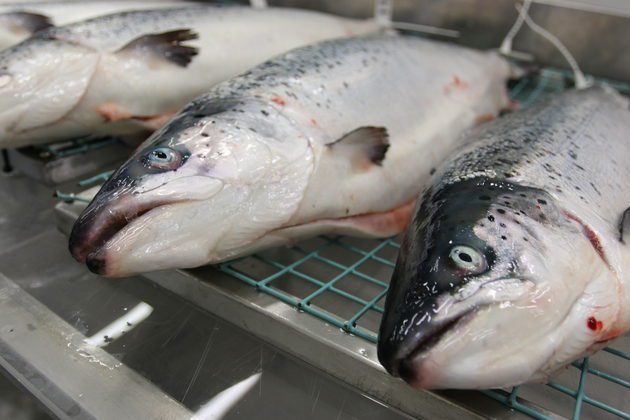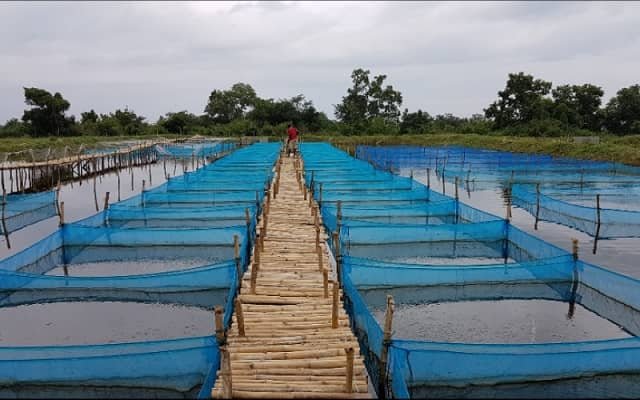
Norway leads the global market for farmed salmon. However, its salmon industry heavily relies on a standardized product, essentially treating salmon as a commodity. This approach raises a key question: can Norwegian salmon producers achieve a sustainable competitive advantage by differentiating their offerings?
New research published in the journal Aquaculture Economics & Management explores this concept through the lens of organic salmon production. Previous studies have examined various aspects of the profitability of Norwegian salmon farming, but none have specifically focused on differentiation strategies.
Researchers from UiT The Arctic University of Norway examined six Norwegian salmon-producing companies over a decade (2009-2020), with special attention to one company that produced both conventional and organic salmon. The study compared key financial metrics, including return on sales (profitability), sales prices, and production costs.
Does organic equal more profit?
The research revolves around a central question: can a differentiation strategy, specifically organic salmon production, offer greater profitability over time compared to conventional farming methods? The unique environment, with all companies operating under similar biological, environmental, and regulatory conditions, provides a valuable lens for examining strategic decision-making within the industry.
The study also sheds light on the nascent field of organic aquaculture, a sector experiencing significant global growth but with limited representation in Norway. Given the growing global appetite for organic foods, the research suggests a promising pathway for Norwegian salmon producers: differentiation through organic production.
Organic advantage: lower costs, higher profits
The study’s findings were surprising. The company (D1) with the organic option consistently achieved higher returns on sales, suggesting that consumers are willing to pay a premium for organic salmon. But here’s the real kicker: despite the often higher costs associated with organic aquaculture, this same company also boasted the lowest production costs among all the companies studied.
The findings suggest that D1 consistently outperformed the other companies in terms of profitability (measured by return on sales – ROS). Interestingly, the study reveals a dual approach to D1’s success:
- Price advantage: D1 consistently achieved higher average sales prices, especially for its organic salmon. Consumers are willing to pay more for organic options, and distributors do the same.
- Cost advantage: Surprisingly, D1 also had the lowest average production costs among the companies studied. Here’s the twist: this cost advantage appears to be an indirect result of its differentiation strategy!
How is this possible? The study suggests that the company’s focus on “biological risk management” could be the key. This approach, likely involving stricter hygiene protocols and better monitoring of fish health, led to lower mortality rates for the salmon. In simpler terms, healthier fish mean less waste and more profit.
Beyond Porter’s paradigm: A new strategic model?
This study challenges the traditional view, outlined by business guru Michael Porter, that companies must choose between differentiation and cost leadership. D1’s success suggests that a hybrid strategy can be effective, even if cost advantage was not the initial goal. Its case highlights the potential for companies to integrate elements of differentiation and cost leadership to achieve a more robust competitive advantage.
Stay Always Informed
Join our communities to instantly receive the most important news, reports, and analysis from the aquaculture industry.
The study aligns with the resource-based view of strategy. D1’s excellence in maintaining low mortality rates is a unique competence, a strategic outcome of its differentiation. Its commitment to organic production led to the development of specialized skills in biological risk management, ultimately reducing production costs.
Conclusion
The main findings of the study include:
- Organic salmon farming can be more profitable: The study suggests that companies like D1, which differentiated by producing organic salmon, achieved higher profitability compared to those focused on standard production.
- Increased profitability linked to efficiency: Interestingly, the study suggests that D1’s success may not be solely due to higher prices for organic salmon. Instead, its differentiation strategy may have led to operational efficiencies that reduced overall production costs.
- Differentiation for deeper advantage: This research highlights a nuanced perspective on differentiation. It goes beyond merely offering a unique product and emphasizes how it can indirectly create a sustainable competitive advantage through cost reduction.
- Success beyond immediate results: The study reminds us that a company’s financial performance can have complex causes. While other factors could influence D1, the evidence suggests that differentiation through organic production is a strong contender.
- Limited adoption despite potential: Although differentiation appears promising, few Norwegian salmon producers have followed D1’s lead. This could be due to concerns about risk, cost offset by price premiums, and the current profitability of the commodity market.
- Changing landscape favors differentiation: The growing global demand for organic products and the EU’s push for organic aquaculture growth create new opportunities. Organic production could become a strategic advantage for Norwegian salmon producers.
- Preparing for the future with organics: With potential disruptions from technological advances, diversification into organic salmon farming could be a proactive strategy. It allows companies to achieve higher prices, potentially reduce costs as the sector grows, and ultimately maintain a strong market position in an evolving landscape.
These findings highlight the potential for organic production to be a competitive advantage in the salmon farming industry. The study also raises questions: why aren’t more companies adopting this approach? More research is needed to explore the specific risk management techniques employed and the broader market potential for organic salmon.
Contact
Kristian Waerness
School of Business and Economics, UiT The Arctic University of Norway
Harstad, Norway
Email: kristian.waerness@uit.no
Reference (open access)
Waerness, K., & Bertheussen, B. A. (2024). Organic salmon farming – A profitable differentiation strategy. Aquaculture Economics & Management, 1–21. https://doi.org/10.1080/13657305.2024.2359703
Editor at the digital magazine AquaHoy. He holds a degree in Aquaculture Biology from the National University of Santa (UNS) and a Master’s degree in Science and Innovation Management from the Polytechnic University of Valencia, with postgraduate diplomas in Business Innovation and Innovation Management. He possesses extensive experience in the aquaculture and fisheries sector, having led the Fisheries Innovation Unit of the National Program for Innovation in Fisheries and Aquaculture (PNIPA). He has served as a senior consultant in technology watch, an innovation project formulator and advisor, and a lecturer at UNS. He is a member of the Peruvian College of Biologists and was recognized by the World Aquaculture Society (WAS) in 2016 for his contribution to aquaculture.







